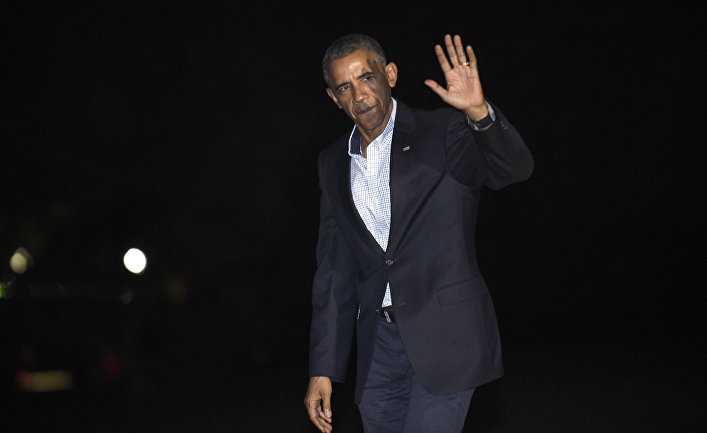Who would have guessed the civil war in Syria would be brought to an end by a Russian-Iranian consortium? In reality the war is still far from being over, and it's hard to predict its twists and turns. In 2011 Ehud Barak, then Israeli Defense Minister, gave Bashar al-Assad just six months. We can hardly blame him that the prediction didn't come true. Half a year before the implosion of the USSR in 1991, the CIA were still predicting the Soviet Union would soldier on into the twenty-first century. Who'd have thought a few bunches of disheveled partisans would dislodge the Batista regime in Cuba — and replace it with a military communist dynasty whose fall, after 56 years at the political helm, no-one dares to forecast. Nonetheless, a Russian-Iranian consortium is trying to seize control of Syria. The Russian intervention is highly significant, and the arrival of ground troops is considered very likely. Russia has trumped the USA and its allies. Under the smokescreen of international solidarity, Putin on every single opponent of Assad, including those supported by the USA, and bankrolled by the CIA.
Obama #ForeignPolicy: Russia and Iran, you take the Mid East. Israel, fend for yourself. Consequences? Hey, I'm outta here in 15 months.
— Larry Elder (@larryelder) October 16, 2015
Barack Obama won't be riding to their rescue. He won't be sending ground troops to the Middle East. And certainly not in his final year in the White House. Nor because he's a pacifist. He doesn't believe in the effectiveness of military intervention. If the whole thing depended on him alone, he wouldn't have gone after Gaffafi in Libya. If not the French and Qataris, Gaddafi would have emerged as the winner in the Libyan civil war – or at least, he wouldn't have accepted defeat. The fearful penny of hindsight is dropping for everyone today — that they would have done better letting sleeping dogs lie.

The same is true of the clumsy ouster of Saddam Hussein – which prompted the most ghastly series of catastrophes in Middle East history. It also knocked the USA off its short-lived perch as Middle-Eastern power-broker. In 2002 Barack Obama – then an unknown member of the Illinois Legislative Assembly – declared he wasn't against war as such, but he was against “idiotic wars”.
In 2002 it was only marginal politicians in the US who were against “stupid wars.” Democrats in Congress rushed to vote for them. Barack Obama turned out to be right, while Hillary slipped up. Yet paradoxically the reason Obama was right is that he didn't know – while Hillary Clinton was wrong, because she did know. Obama didn't have the intelligence data – he wasn't yet at that level. But Hillary Clinton, and other Democrats in Congress did receive the intelligence. And the intelligence data turned out to be completely mistaken.
Pledging to end 2 wars, Obama finds himself entangled in 3. A look at Afghanistan, Iraq and Syria: http://t.co/TgHoJdghe2 @gregmyre1
— NPR (@NPR) October 15, 2015
President Bush even asked the CIA Director outright: “What? Is that all you've got?” — when the CIA gave their report on the “weapons of mass destruction.” The CIA Director replied with a favorite American expression: “It's a slam-dunk” — meaning a ball that can't fail to make the basket. And so the gut instinct of an unknown Chicago politician proved smarter than all of the secret service data.
Managing the empire with pragmatism
Obama continued to rely on instinct and intuition even after he entered the White House. He believed that military intervention – even if limited, or short-term – will only worsen the US position. In principle almost all American politicians have thought the same, beginning with George Washington. It's the classic stance of the pragmatic wing in the governance of empire. Power is most effective, when it remains hinted at. But when a superpower begins using force, it's simply throwing it away.
Putin taking charge in Mideast? Obama's response: 'My definition of leadership would be leading on climate change,' http://t.co/R7T1Jqo5Km
— Byron York (@ByronYork) October 12, 2015
This practical policy steered Great Britain through its glory days, with a few exceptions. The key to success is to keep emotions out of it, when making foreign policy decisions. Emotions — especially when generated in the streets, and manipulated by irresponsible journalists — drag the nation into an escapade which begins with glory, but ends in ignominy and humiliating defeat.
Obama had hoped to keep the Syrian quagmire at bargepole distance – and to pull back still further at the first sign of trouble. He missed his history-book moment when he failed to observe his own “red line,” and not punish President Assad for his use of chemical weapons two years previously. Russia inveighed with Assad not to use force – but they were far away and powerless. The Syrian opposition awaited the bombardment with bated breath.
Americans believe Putin has upper hand on Obama in Syria – poll http://t.co/SmvePY2xeL pic.twitter.com/GIDAwKfrSs
— RT (@RT_com) October 15, 2015
It was then that President Putin realized what the US President's supporters had known long ago — “No drama from Obama,” and his cold-bloodedness was enough to melt the ice of Antarctica. Then the Ukraine situation emerged, where the 'non-dramatic' conclusions already drawn served Russian interests magnificently — along with Iran's interests on the negotiations over its nuclear program.
A very long lineage
Collaboration between Iran and Russia over Syria is a perfect example of the destruction of the West. It's proved to be a fiasco for President Erdogan of Turkey. It's been a resounding and smarting face-slap for Saudi Arabia, the Gulf States, Egypt and Jordan. For Israel, it's a disaster. If things go ahead as planned, then an overland corridor will appear, running from Tehran to Beirut. Before 2003, this corridor was merely the stuff of dreams for Iran. America's messianic dreams have made it a reality (“Reform of the Muslim world,” no less – as George Bush's personal Achitophel, Paul Wolfowitz pledged) along with their inaction in the early stages of Syria's civil war.
Iran will make good its historic dreams of expansion. The last time the Iranians could bathe their feet in the Mediterranean was in the first quarter of the Seventh Century – ten years before Arabian Bedouin horsemen darted out of their desert strongholds to smash the Persian Empire (along with several other kingdoms). Geography and politics conquer everything. Just as the line of historic destiny has bridged the ambitions of the Tsarist Empire with modern-day Russia, so an extremely long lineage runs from the early-Medieval Sassanid Empire to modern Islamist Iran.






